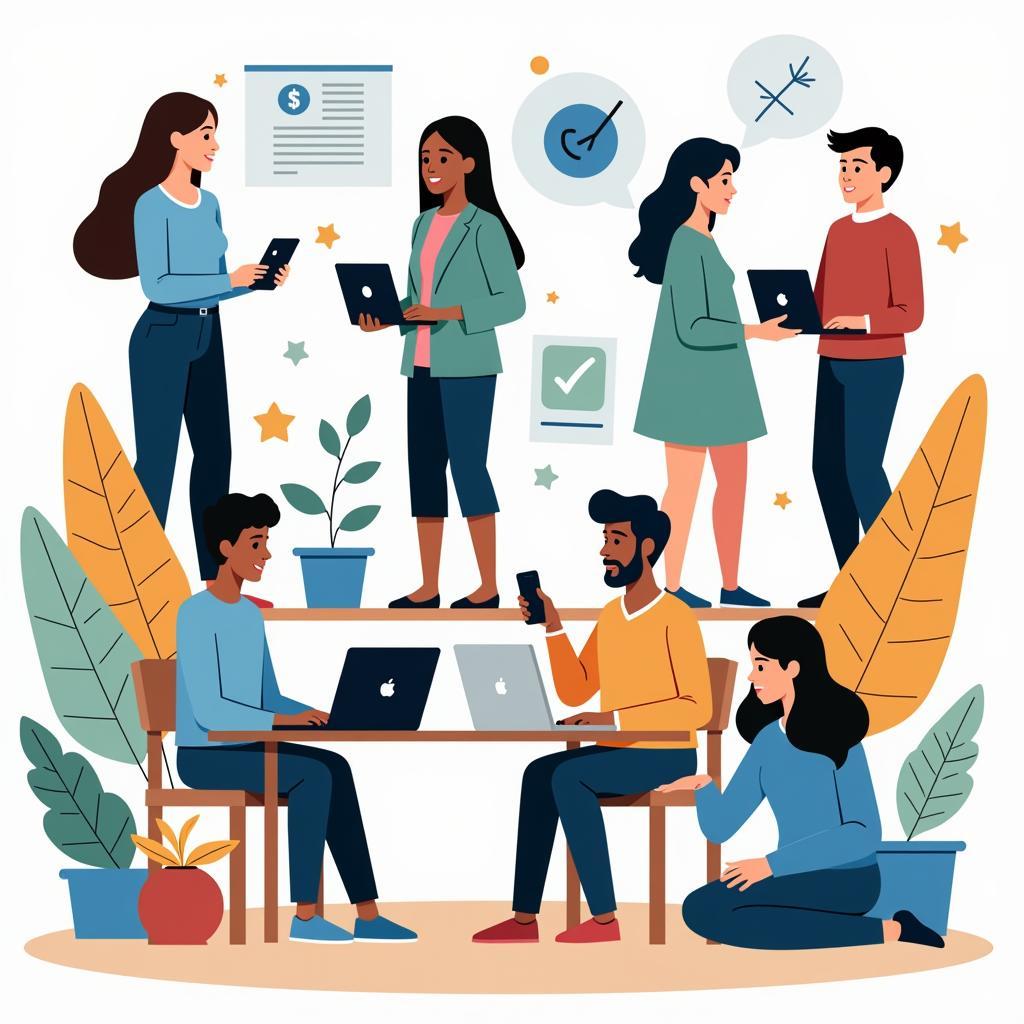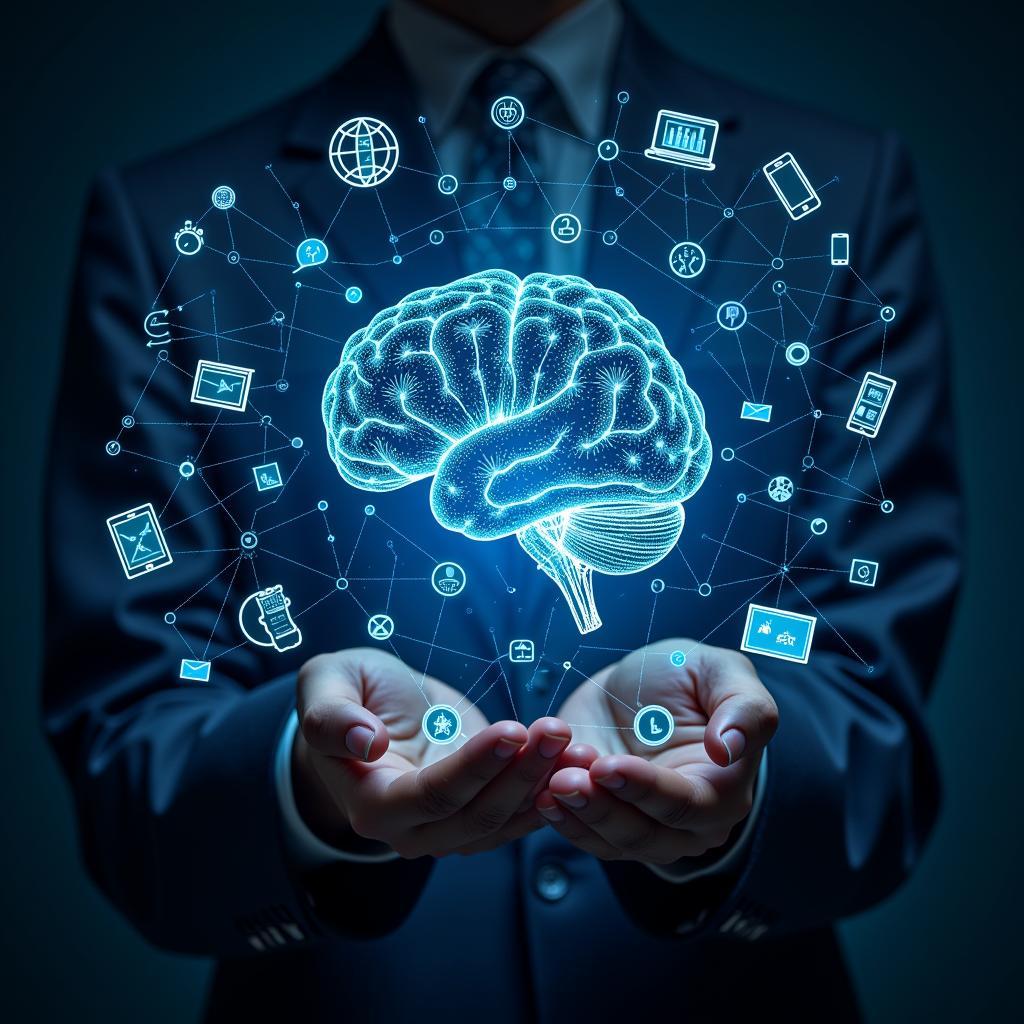The term “information society” frequently pops up in discussions about technology’s impact on our lives. But what does it truly mean? In essence, an information society is characterized by the widespread production, distribution, and consumption of information. This information, readily accessible through advanced technologies, plays a pivotal role in shaping social, economic, and cultural landscapes.
Understanding the Information Society
To delve deeper, let’s break down the core elements that define an information society:
- Technology as a Cornerstone: At its heart, the information society thrives on technology. From computers and the internet to smartphones and beyond, these tools facilitate the creation, sharing, and access to information on an unprecedented scale.
- Information as a Valuable Resource: In this digital age, information itself transforms into a valuable commodity. It empowers decision-making, fuels innovation, and connects individuals and communities across geographical boundaries.
- Knowledge-Based Economies: As information takes center stage, economies shift from traditional industries to those driven by knowledge and innovation. Think software development, data analysis, and research-intensive fields.
- Transformation of Social Interactions: The way we connect, communicate, and build relationships undergoes a profound shift. Social media platforms, instant messaging, and video conferencing redefine social interaction in the digital realm.
 Global Information Flow
Global Information Flow
The Impacts of an Information Society
The rise of the information society brings both opportunities and challenges:
Positive Impacts:
- Increased Access to Knowledge: The information age has democratized learning. Vast online libraries, educational platforms, and digital resources provide unparalleled opportunities for personal and professional growth.
- Enhanced Communication and Collaboration: Geographical barriers crumble as technology allows us to connect with individuals across the globe. This fosters collaboration, cross-cultural understanding, and the exchange of diverse perspectives.
- Economic Growth and Innovation: The information society fosters a breeding ground for innovation, leading to the creation of new industries, job opportunities, and economic growth.
- Improved Governance and Citizen Engagement: Governments and institutions can leverage technology to enhance transparency, efficiency, and citizen participation in democratic processes.
Challenges:
- Digital Divide: Unequal access to technology and digital literacy creates a divide, potentially marginalizing certain communities and widening existing inequalities.
- Privacy and Security Concerns: The widespread use of personal data in the information age raises concerns about privacy violations, identity theft, and cybersecurity threats.
- Spread of Misinformation: The ease of creating and sharing content online creates fertile ground for the rapid spread of misinformation, requiring critical evaluation and media literacy skills.
- Ethical Considerations: As technology advances, we grapple with complex ethical dilemmas related to artificial intelligence, data ownership, and the responsible use of information.
 Bridging the Digital Divide
Bridging the Digital Divide
Navigating the Information Society Ethically
As active participants in the information society, it’s crucial to engage with this evolving landscape responsibly and ethically. This includes:
- Promoting Digital Literacy: Empowering ourselves and others with the skills to critically evaluate information, identify misinformation, and use technology safely and effectively.
- Advocating for Digital Inclusion: Supporting initiatives that bridge the digital divide, ensuring equitable access to technology and digital literacy for all.
- Respecting Privacy and Security: Being mindful of our digital footprint, protecting personal information, and advocating for responsible data privacy practices.
- Engaging in Constructive Dialogue: Using online platforms to foster meaningful conversations, bridge cultural divides, and promote understanding and empathy.
The Future of the Information Society
The information society is not static; it’s a constantly evolving landscape shaped by technological advancements and societal shifts. As we move forward, key trends to watch include:
- Artificial Intelligence (AI): AI will continue to revolutionize various aspects of our lives, from personalized learning experiences to automated decision-making in various industries.
- Internet of Things (IoT): The increasing interconnectedness of devices will generate vast amounts of data, creating new possibilities for data analysis, automation, and personalized services.
- Blockchain Technology: Beyond cryptocurrency, blockchain has the potential to enhance transparency, security, and trust in various sectors, from supply chain management to digital identity verification.
 The Future of the Information Society
The Future of the Information Society
Conclusion
The information society, powered by technology and the flow of information, has profoundly reshaped our world. By understanding its complexities, embracing its opportunities, and navigating its challenges ethically, we can harness its potential to create a more informed, connected, and equitable future for all. Let’s strive to be responsible digital citizens, using the power of information to build bridges, foster understanding, and promote peace in our interconnected world.
For support or assistance in navigating the digital age, please contact us at Phone Number: 02043854663, Email: [email protected], or visit our address: Khu 34, Bac Giang, 260000, Vietnam. Our dedicated customer service team is available 24/7 to assist you.